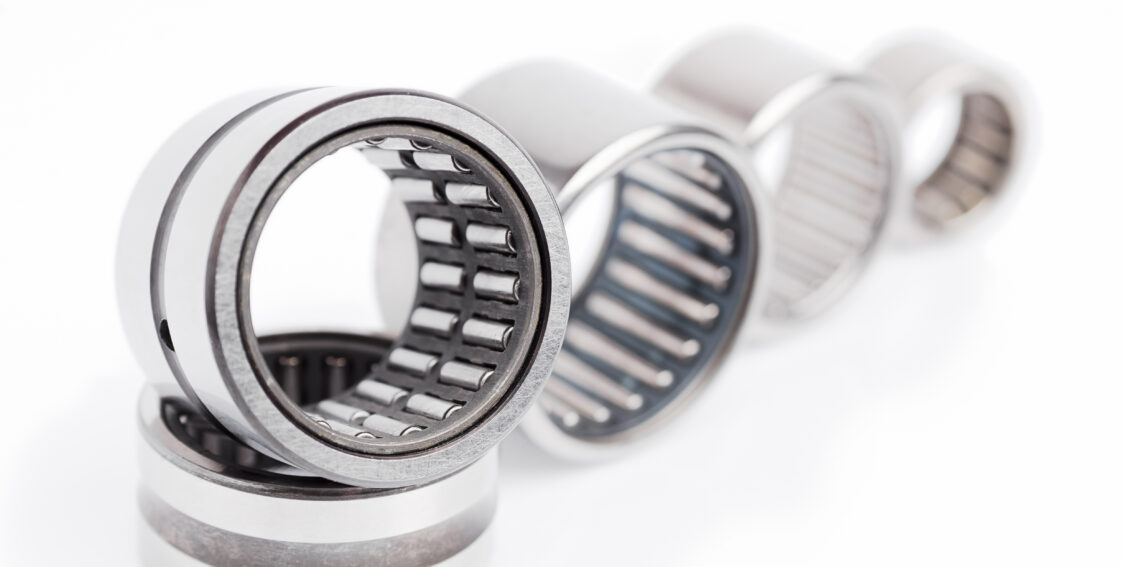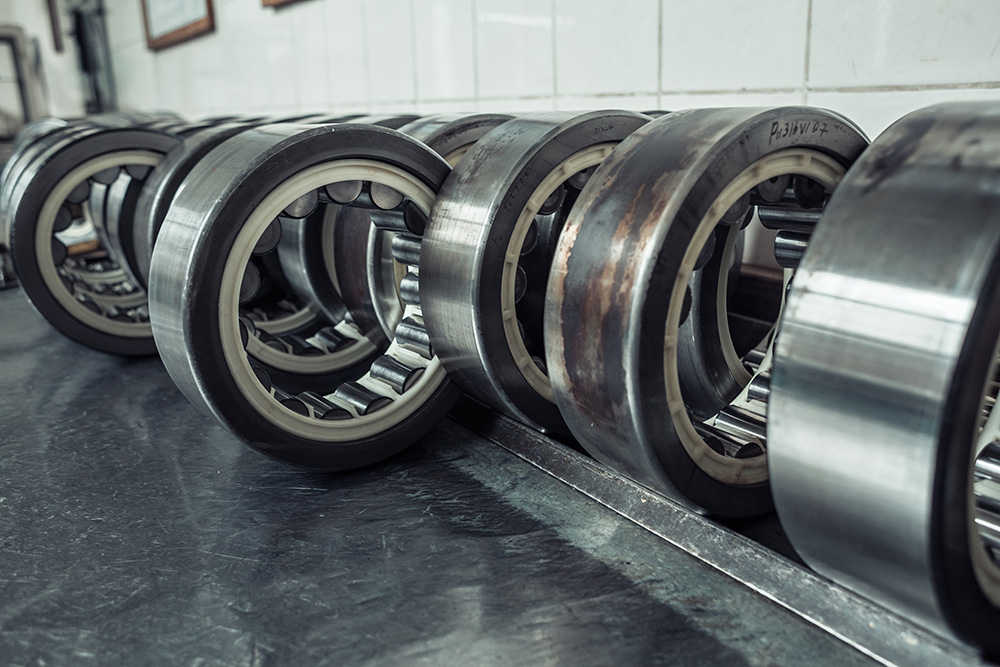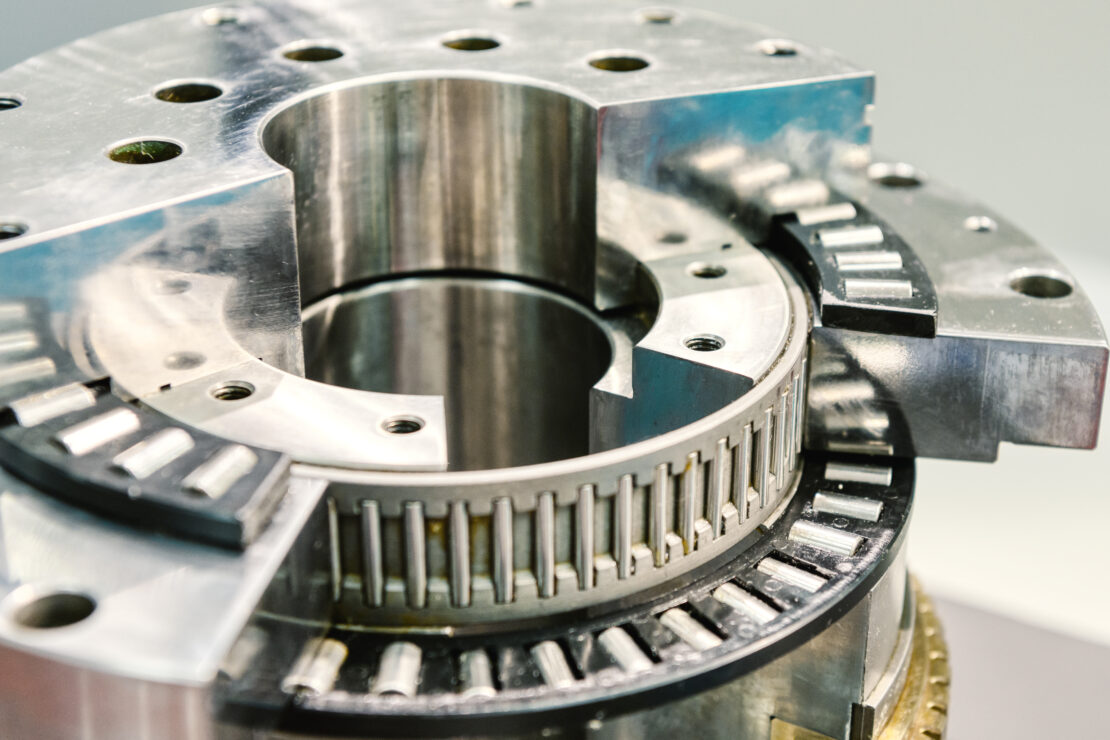
When Should You Use Precision Needle Roller Bearings?

How do you decide between using standard needle roller bearings and precision needle roller bearings? Answering this question comes down to understanding the factors of your application, including speed requirements, environmental conditions, space availability, and more.
What Are Standard Needle Roller Bearings?
Standard bearings could refer to anything from ball bearings to drawn cup roller bearings. A standard roller bearing is not necessarily designed for any specific application. When applications require tighter tolerances, that’s when precision bearings are needed.
What Are Precision Needle Roller Bearings?

Like standard needle roller bearings, precision bearings consist of an inner and outer ring (called the raceway), rollers, and a cage that holds the rollers with a retaining lip. They are lightweight, have a low coefficient of friction, and are ideal solutions for areas with limited space.
Precision roller bearings are specifically designed for applications that require high accuracy and/or high speed, including tool spindles and measuring instruments. There are also several “levels” or “classes” of precision bearings. Some roller bearings may be referred to as precision, while others are considered “super precision” or “high precision.”
Additionally, precision needle roller bearings come in several configurations, including thrust, drawn cup, tapered, spherical, cylindrical, and more. The bearing used in the design of the precision roller bearing is determined by the application.
Common Uses/Applications
The automotive industry heavily relies on precision needle bearings due to their ability to handle high axial and radial loads at high speeds. Common automotive applications include transmissions, compressors, pumps, ball joints, gearboxes, connecting rods, and drive shafts.
The aerospace industry also utilizes these precision bearings to manufacture landing gears, power units, gearboxes, pumps, engines, flap carriages, and wing slats.
How to Properly Handle & Maintain Bearings
Precision needle bearings operate in extreme environments, leading to oxidation and corrosion over time. In addition to corrosive chemicals, other factors that can reduce the service life of a bearing include improper lubrication (or using low-quality grease), dirt, and debris.
Dirt and debris can get lodged between needle rollers, reducing their rotation speeds. Lower speeds eventually lead to high friction between surfaces until failure occurs, which can lead to extensive repair and refurbishment costs.
Some tips for maintaining your precision needle roller bearings include:
- Use the correct lubricant. There are grease and oil lubricants. Grease is most often used to lubricate bearings. However, some oil lubricants are best suited for high-temperature and high-speed applications. Your bearing manufacturer should provide you with a recommended lubricant and basic lubrication guidelines.
- Make sure you mount it correctly. Follow the manufacturer’s installation/mounting guidelines. Mounting procedures are typically broken down into hot, hydraulic, or mechanical.
- Don’t skip inspections. Most manufacturers will specify how often you should perform inspections. If none are available, create a maintenance program for your facility. For each inspection, look for signs of excessive wear and tear and other noticeable issues such as fractures, dirt, or corrosion.
If you have questions about needle bearing maintenance, please visit our blog.
Order Precision Needle Roller Bearings From Universal Bearings
Founded over 60 years ago, Universal Bearings is an IATF-16949, ISO-9001, and ISO-14001-certified manufacturer of standard and precision needle roller bearings. We specialize in radial, drawn cup, and thrust roller bearings but can also design and manufacture custom assemblies. All bearings we produce are heat treated and tested in our in-house U.S. facility.
You can visit our website to learn more about our capabilities. If you have questions about precision bearings or need help selecting the right solution for your application, please contact us today. Visit our website to learn more about our capabilities, or contact us today for help in selecting the right bearing.



